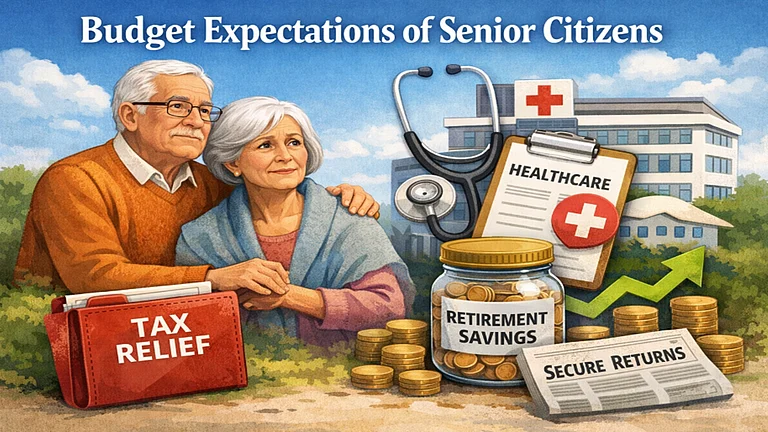The income tax assessment period is here and it is now important for everybody to evaluate their tax liability and file the income tax returns (ITRs) for the assessment year 2025-26. Many senior citizens might find themselves caught in the maze of various forms, income tax rules and choices over regime (old or new tax regime).
For the financial year (FY) 2014-25 (AY2015-26), knowing which ITR form to use is important.
Let’s start with the basics: Tax Slabs for senior citizens.
If you are a senior citizen, that is someone who has crossed the age of 60, the Income Tax Act 1961 has the following key rules in place:
- Your income up to Rs 3 lakh is exempt from tax under the old tax regime
- If you are over 80, the bar is raised to Rs 5 lakh
However, do note that if you have opted into the New Tax Regime, these income thresholds don’t apply. Under the NTR, everyone, senior or not, falls under the same basic exemption limit of Rs 3 lakh.
Here’s a tabular presentation of tax slabs for seniors:
1) Old Tax Regime (AY 2025-2026)
For senior citizens who are aged 60 years or more but less than 80 years:
Up to Rs 3 lakh: Nil
Rs 3 lakh to Rs 5 lakh: 5%
Rs 5 lakh to Rs 10 lakh: 20%
Above Rs 10 lakh: 30%
For super senior citizens aged 80 years and above:
Up to Rs 5 lakh: Nil
Rs 5,00,001 to Rs 10 lakh: 20%
Above Rs 10 lakh: 30%
2) New Tax regime (AY 2025-2026)
Up to Rs 2.5 lakh: None
Rs 2.5 lakh to Rs 5 lakh: 5%
Rs 5 lakh to Rs 7.5 lakh: 10%
Rs 7.5 lakh to Rs 10 lakh: 15%
Rs 10 lakh to Rs 12.5 lakh: 20%
Rs 12.5 lakh to Rs 15 lakh: 25%
Above Rs 15 lakh: 30%
Please know that the tax rates in the new regime remain the same for all categories of Individuals. This means that there is one uniform tax slab under NTR for Individuals, Senior citizens, and Super senior citizens.
Now that you know the tax slabs, here’s how to get the ITR form right.
ITR Forms for Senior Citizens
1) ITR-1 (Sahaj)
ITR-1 (Sahaj) is the most common income tax form.
When it comes to seniors, who should use this form? Those who:
- Earn a pension
- Earn Interest income
- Have total income under Rs 50 lakh
This form is meant for individuals earning income through salary, one-house property (such as rent from a single flat), pension, and interest from bank deposits.
However, if you are a director in a company or have held unlisted shares, or have income from foreign assets or sources outside India, this form is not for you.
2) ITR-2
If your financial affairs are a little bit more complex, for instance, you have capital gains from selling property or shares or income from more than one house, then ITR-2 is what you will need.
This form is used to file ITR by those who earn income from capital gains and multiple properties, making it a better fit for retirees with investments or real estate portfolios.
3) ITR-3 and ITR-4 (for the self-employed)
These forms are for senior citizens who run small businesses or offer consultancy services. In such cases,
ITR-3 is applicable to those with income from a business or profession.
ITR-4 is suitable for those using the presumptive taxation scheme under Sections 44AD (for businesses, excluding those engaged in professional services) or 44DA (exclusively for specified professionals). This is for individuals who declare a fixed percentage of their income as taxable.
Who doesn’t need to file?
Not all senior citizens are required to file income tax returns. A special rule applies to those above the age of 75 years.
If your only source of income is a pension and interest from savings or fixed deposit, and both are received in the same bank, you may be exempt from filing an ITR. This exemption is referred to Section 194P of the Income Tax Act, 1961 (introduced in April 2021).
However, to avail of this exemption you will need to submit Form 12BBA to your bank, declaring your income and ensuring they deduct the necessary taxes at source.
Even if the taxes are already deducted at source, seniors should report all sources of income including pension, rent, interest, dividends or commissions to avoid any mismatch or notice from the income tax department.


















